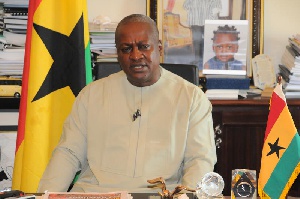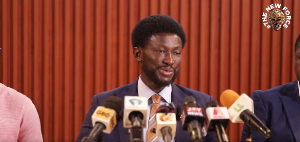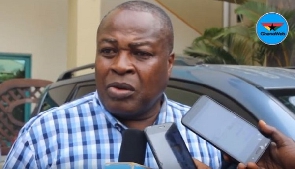Jobs, infrastructure, quality education and healthcare are foremost among people’s expectations of President John Dramani Mahama and the next government that he will lead after his victory at last Friday’s polls.
President Mahama has by promised to grow the economy by at least 8% annually, and increase the per capital income, currently in the region of US$1,500, to US$2,300 by 2016. But he faces calls to use his government’s second-term mandate to translate the gleaming growth numbers into tangible development outcomes.
“I want to see jobs and good healthcare; these are the things that facilitate development,” Joseph Mills Lamptey, a student, told B&FT in a survey to gauge voters’ expectations of the President’s second term.
The President told voters during his campaign that job- creation will be a priority of his administration, which, in its first term, has expanded real GDP at more than 8% per annum and halved inflation from 18% to 9%.
The government has also largely maintained a stable economy-with inflation trapped within a narrow 8-10% range for 30 consecutive months- and continued with financial sector reforms targeted to improve access to capital by households and business.
A blot on this record of stability however is the sharp depreciation of the cedi witnessed this year, which caused the Bank of Ghana (BoG) to raise interest rates to cool the growth in credit and import demand that was undermining the strength of the currency.
In its 2012 election manifesto, the government has said it will create a GHC10 million jobs and Enterprise Development Fund to support youth enterpreneural ventures and increase job-creation.
The manifesto has also assured of thousands of jobs to be created in new industries such as petrochemicals, fertilizers, and steel manufacturing-which will be built using the oil and gas resources that are currently being developed.
Oil revenues received by the government from the start of production to September 2012 total US$ 784 million, and though the funds have been established in the petroleum revenue management legislation, the president has more to do to convince many that Ghana’s oil wealth is impacting their lives in positive ways.
“I don’t see any concrete thing that has been done with the oil money”, said Eugene Kwasi Gyekye a public relations practitioner, who added that he expects the next government to use oil receipts to fund “creative and innovative” social programmes to improve people’s lives.
Education, which was at the centre of a heated political debate in the run-up to the December 7 elections, continues to occupy people’s minds. “I expect that since education is the backbone of every country, the government should improve facilities in the schools and provide quality education, and said he will bolster school infrastructure and boost teacher-training institutions.
An important dilemma he faces in 2013 is whether to retain the costly subsidies on petroleum and utilities or to scale they back in order to free the resources to be used in critical sectors such as education and health.
The cost of the subsidies in 2012- GHC 697.7 million according to the supplementary budget approved by parliament in July- is more than the government’s total income from oil in the first three quarters of the year.
In the health sector, the President will have to close a wide infrastructure deficit and address weakness in the operation of the National Health Insurance Scheme (NHIS)- which a World Bank report on the financing of health in Ghana, published in January 2012, highlighted.
The government had promised to introduce a “one time” health insurance premium for all users during its first term, but seems to have backtracked amid experts’ warning that the scheme could be jeopardized by such policy.
But even as the president will confront serious challenges in his next government, he will benefit from the inflow of substantial new revenues from the oil sector as production at the Jubilee field picks up and new oil wells come on stream.
From 2013, the economy will begin to realize the benefits of the major infrastructural investments that have been started with Chinese-backed loans secured on future oil revenues.
The electricity-sector outlook is particularly seen as very encouraging due to the expected completion of the Bui hydro-electric dam, which has a 400-megawatt generation capacity, and the development of natural gas from the Jubilee field for power generation.
Other prospects lie in the development of renewable to augment the traditional energy sources, with international energy companies turning their attention to Ghana following the enactment of a renewable energy law in 2011.
Mere Power Nzema Ltd, a UK- based firm, announced plans last week to build a 155-megawatt solar power plant valued at US$400 million in the Nzema area. The renewable energy law expects renewable to constitute 10% of energy generation by 2020 and include provisions to guarantee market and prices for investors. “I want to see all this translate into jobs and money in our pockets”, said Dennis Opare, a taxi driver. “With such good things coming in future, I want to see an improvement in everything”.
Click to view details



Business News of Friday, 14 December 2012
Source: B&FT

















